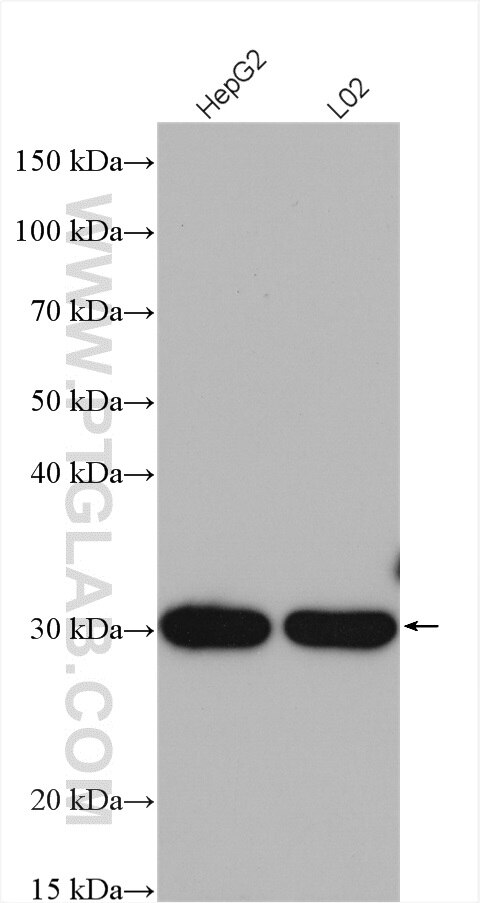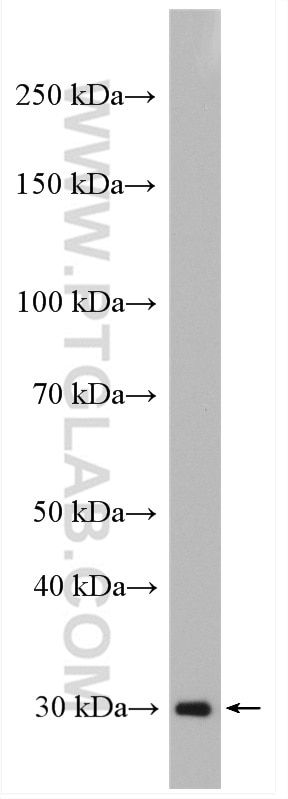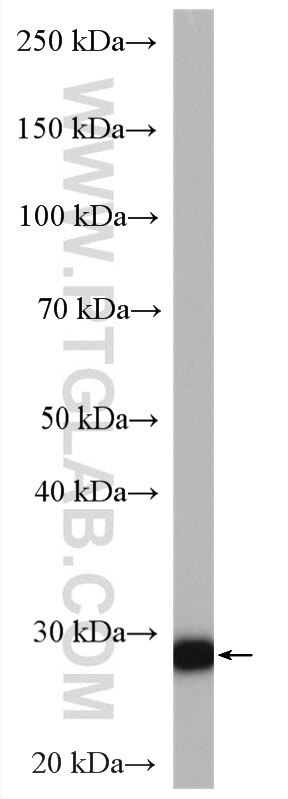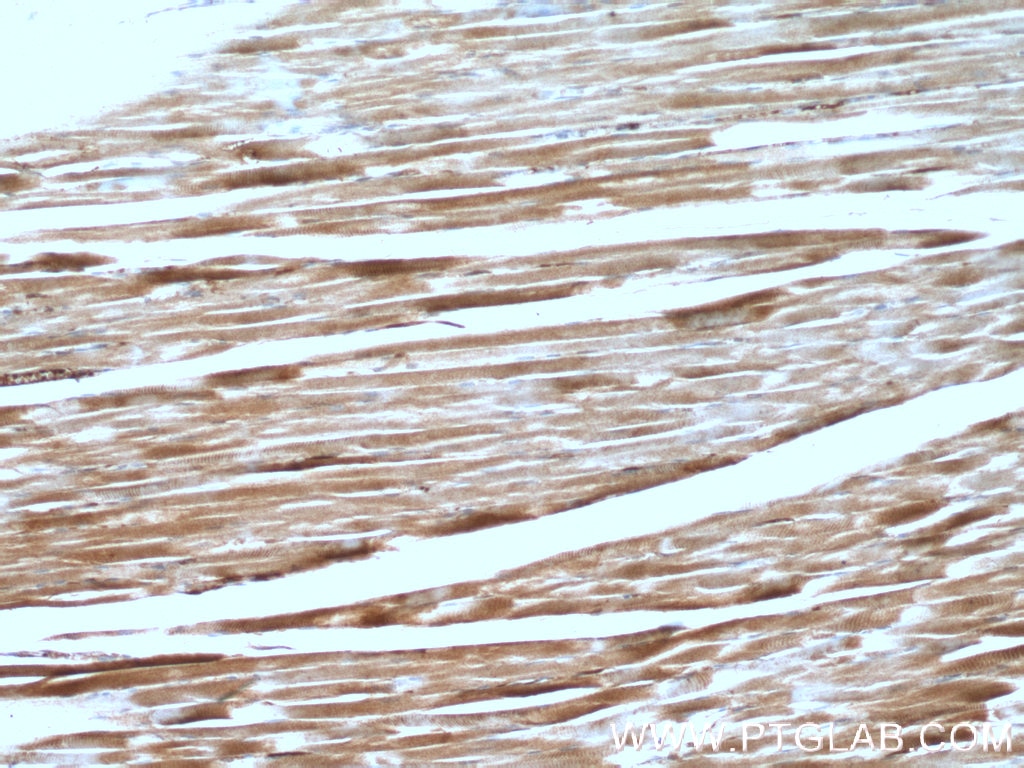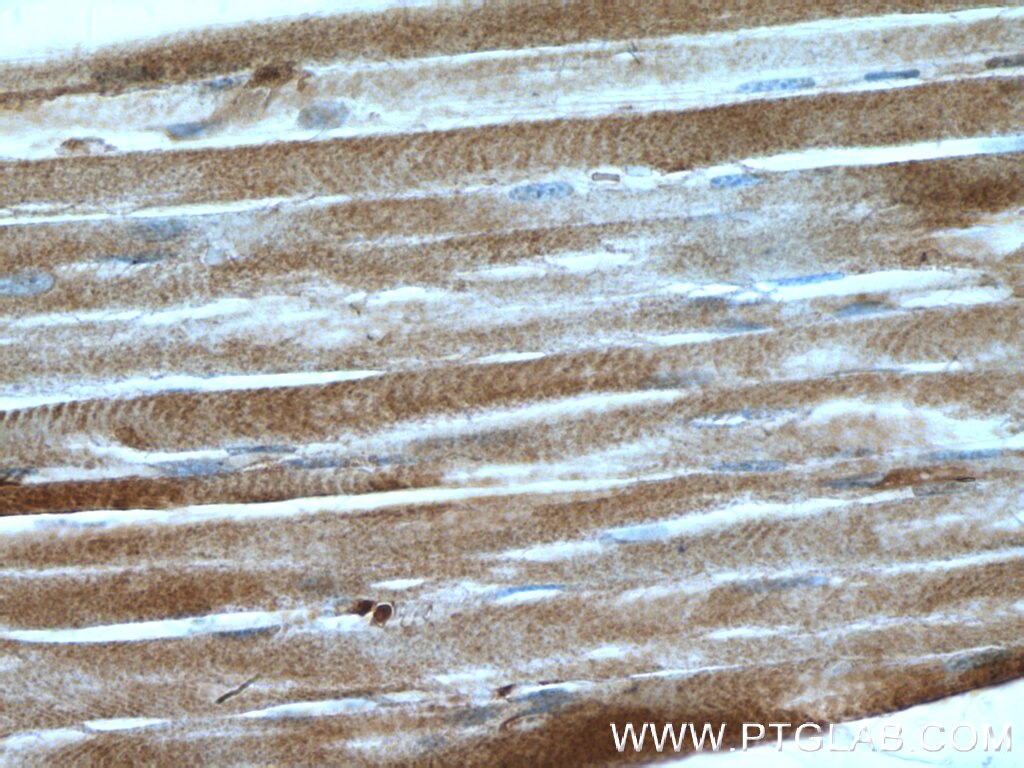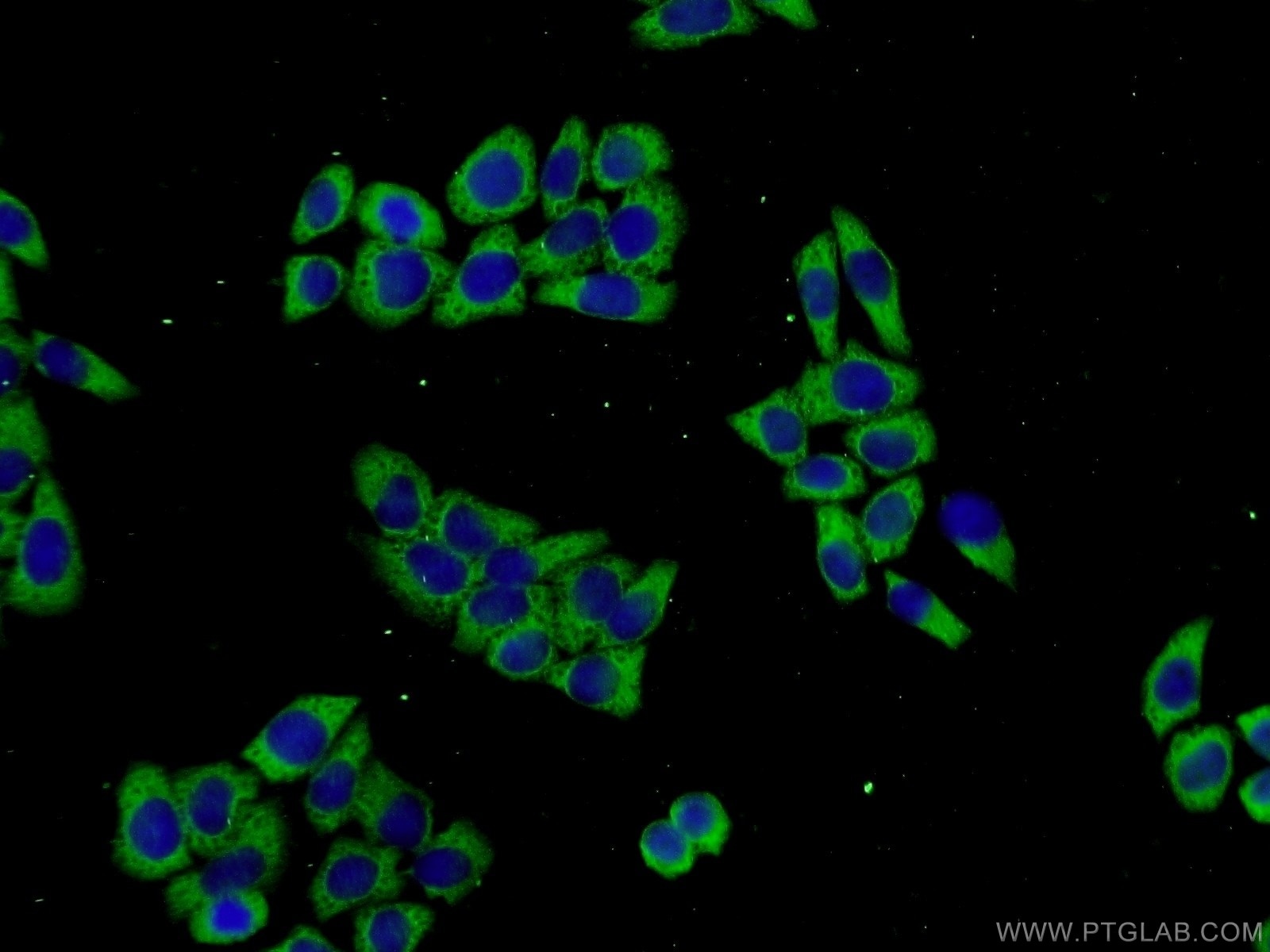PROSC Polyclonal antibody
PROSC Polyclonal Antibody for IF, IHC, WB, ELISA
Host / Isotype
Rabbit / IgG
Reactivity
human and More (1)
Applications
WB, IHC, IF, ELISA
Conjugate
Unconjugated
Cat no : 25154-1-AP
Synonyms
Validation Data Gallery
Tested Applications
| Positive WB detected in | HepG2 cells, L02 cells |
| Positive IHC detected in | human skeletal muscle tissue Note: suggested antigen retrieval with TE buffer pH 9.0; (*) Alternatively, antigen retrieval may be performed with citrate buffer pH 6.0 |
| Positive IF detected in | L02 cells |
Recommended dilution
| Application | Dilution |
|---|---|
| Western Blot (WB) | WB : 1:1000-1:6000 |
| Immunohistochemistry (IHC) | IHC : 1:100-1:400 |
| Immunofluorescence (IF) | IF : 1:20-1:200 |
| It is recommended that this reagent should be titrated in each testing system to obtain optimal results. | |
| Sample-dependent, Check data in validation data gallery. | |
Published Applications
| WB | See 2 publications below |
Product Information
25154-1-AP targets PROSC in WB, IHC, IF, ELISA applications and shows reactivity with human samples.
| Tested Reactivity | human |
| Cited Reactivity | human, mouse |
| Host / Isotype | Rabbit / IgG |
| Class | Polyclonal |
| Type | Antibody |
| Immunogen | PROSC fusion protein Ag18369 |
| Full Name | proline synthetase co-transcribed homolog (bacterial) |
| Calculated Molecular Weight | 275 aa, 30 kDa |
| Observed Molecular Weight | 30 kDa |
| GenBank Accession Number | BC012334 |
| Gene Symbol | PROSC |
| Gene ID (NCBI) | 11212 |
| RRID | AB_2879929 |
| Conjugate | Unconjugated |
| Form | Liquid |
| Purification Method | Antigen affinity purification |
| Storage Buffer | PBS with 0.02% sodium azide and 50% glycerol pH 7.3. |
| Storage Conditions | Store at -20°C. Stable for one year after shipment. Aliquoting is unnecessary for -20oC storage. 20ul sizes contain 0.1% BSA. |
Background Information
Human Pyridoxal 5′-phosphate-binding protein (PLPBP; previously proline synthase cotranscribed homolog, PROSC) was first described in 1999 and was demonstrated to be ubiquitously expressed in many tissues. PROSC is ubiquitously expressed in human tissues and is highly conserved throughout evolution. PROSC deficiency could therefore markedly increase free cellular PLP levels (PMID: 31825581, 27912044).
Protocols
| Product Specific Protocols | |
|---|---|
| WB protocol for PROSC antibody 25154-1-AP | Download protocol |
| IHC protocol for PROSC antibody 25154-1-AP | Download protocol |
| IF protocol for PROSC antibody 25154-1-AP | Download protocol |
| Standard Protocols | |
|---|---|
| Click here to view our Standard Protocols |
Publications
| Species | Application | Title |
|---|---|---|
Int J Mol Sci Translation Fidelity and Respiration Deficits in CLPP-Deficient Tissues: Mechanistic Insights from Mitochondrial Complexome Profiling |
